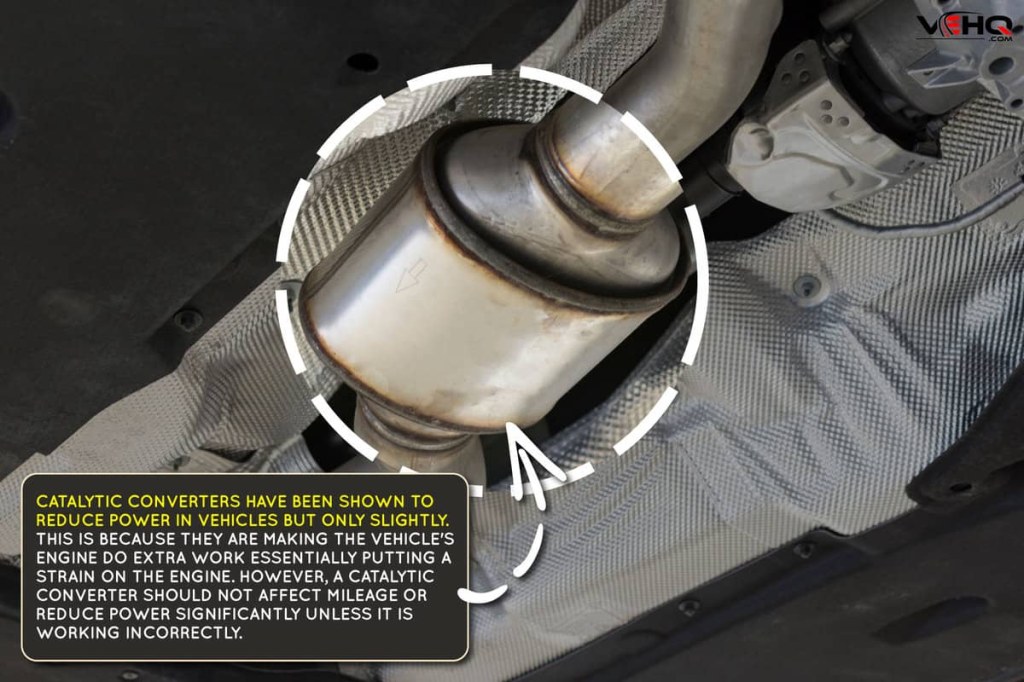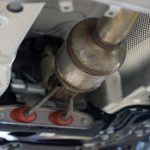Discover How A Bad Catalytic Converter Negatively Impacts Gas Mileage – Learn More Now!
Does a Bad Catalytic Converter Affect Gas Mileage?
Introduction
Hello, Converter users! Welcome to our informative article discussing the effects of a bad catalytic converter on gas mileage. If you’re a car enthusiast or simply a concerned vehicle owner, understanding the impact of a malfunctioning catalytic converter on fuel efficiency is crucial. In this article, we will dive into the details and provide you with valuable insights. So, let’s get started!
1 Picture Gallery: Discover How A Bad Catalytic Converter Negatively Impacts Gas Mileage – Learn More Now!
What is a Catalytic Converter?
A catalytic converter is a vital component of a vehicle’s exhaust system. It helps reduce harmful emissions from the engine by converting them into less harmful substances before they are released into the atmosphere. The converter plays a critical role in maintaining environmental standards and ensuring clean air quality.
How Does a Catalytic Converter Work?

Image Source: vehq.com
The catalytic converter contains a catalyst, typically made of platinum, palladium, and rhodium, which facilitates chemical reactions. As the exhaust gases pass through the converter, the catalyst triggers reactions that convert harmful gases like carbon monoxide, nitrogen oxides, and unburned hydrocarbons into carbon dioxide, nitrogen, and water vapor.
Signs of a Bad Catalytic Converter
It’s essential to be aware of the signs that indicate a potential problem with your catalytic converter. Some common symptoms include a significant drop in fuel efficiency, engine performance issues, a sulfur-like smell from the exhaust, and the illumination of the Check Engine light. If you experience any of these signs, it is advisable to have your converter inspected and repaired or replaced if necessary.
Effects of a Bad Catalytic Converter on Gas Mileage
🔍 Reduced Fuel Efficiency: A malfunctioning catalytic converter can significantly impact your vehicle’s gas mileage. When the converter fails to convert harmful gases efficiently, the engine has to work harder to maintain proper combustion. This extra strain on the engine leads to decreased fuel efficiency.
🔍 Increased Fuel Consumption: A bad catalytic converter can cause the engine to burn more fuel than necessary. This excess fuel consumption not only wastes money but also contributes to increased carbon emissions, negatively impacting the environment.
🔍 Engine Performance Issues: A faulty converter can disrupt the engine’s air-fuel mixture, resulting in reduced power and performance. This can manifest as sluggish acceleration, difficulty in maintaining higher speeds, and overall decreased driving satisfaction.
🔍 Emission Failures: A failing or ineffective catalytic converter can lead to increased emissions beyond acceptable limits. This can result in failed emissions tests, which may lead to legal issues, fines, or the inability to register your vehicle.
🔍 Higher Maintenance Costs: Ignoring a bad catalytic converter can lead to more severe damage to other engine components over time. Addressing the issue promptly can help prevent costly repairs and ensure optimal vehicle performance.
🔍 Environmental Impact: A malfunctioning converter contributes to increased pollution levels by allowing harmful gases to be released into the atmosphere. By fixing or replacing a bad catalytic converter, you are actively contributing to a cleaner and healthier environment.
Conclusion
In conclusion, a bad catalytic converter can significantly affect gas mileage, engine performance, and overall vehicle efficiency. It is crucial to pay attention to the warning signs, such as decreased fuel efficiency and engine issues, to address any potential problems promptly. By understanding the impact of a malfunctioning converter, you can make informed decisions to ensure a more sustainable and cost-effective driving experience. Remember, a well-maintained catalytic converter not only benefits your vehicle but also the environment we all share.
Frequently Asked Questions (FAQs)
Q: Can a bad catalytic converter cause a decrease in power?
A: Yes, a faulty catalytic converter can disrupt the engine’s air-fuel mixture, leading to reduced power and overall performance.
Q: Do I need to replace a bad catalytic converter immediately?
A: It is advisable to address a bad catalytic converter promptly to avoid further damage to the engine and potential legal issues.
Q: Does a bad catalytic converter always trigger the Check Engine light?
A: Not necessarily. While the Check Engine light can indicate converter issues, other factors may also trigger its illumination. It is essential to have a professional diagnosis to identify the exact cause.
Q: Can a malfunctioning catalytic converter pass an emissions test?
A: No, a bad catalytic converter is likely to cause emissions levels to exceed acceptable limits, resulting in a failed emissions test.
Q: How often should I have my catalytic converter inspected?
A: It is recommended to have your catalytic converter inspected during regular vehicle maintenance and tune-ups. However, if you suspect any issues, it is best to have it checked sooner.
Final Remarks
Understanding the impact of a bad catalytic converter on gas mileage is essential for every vehicle owner. By maintaining a properly functioning converter, you not only ensure optimal fuel efficiency but also contribute to a cleaner and healthier environment. Remember to consult a professional if you suspect any issues with your catalytic converter, and always prioritize the well-being of your vehicle and the world around us.
This post topic: Converter



